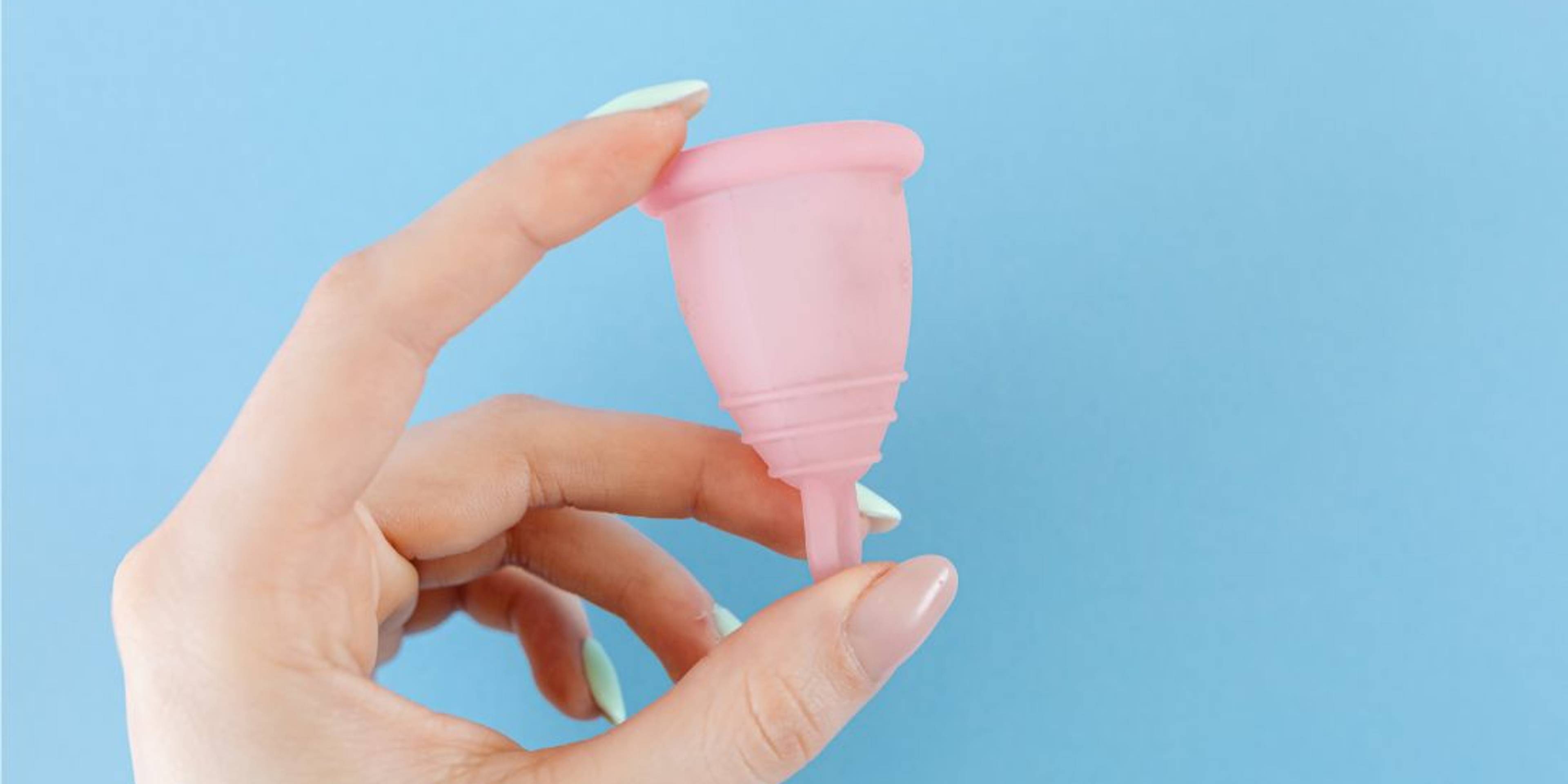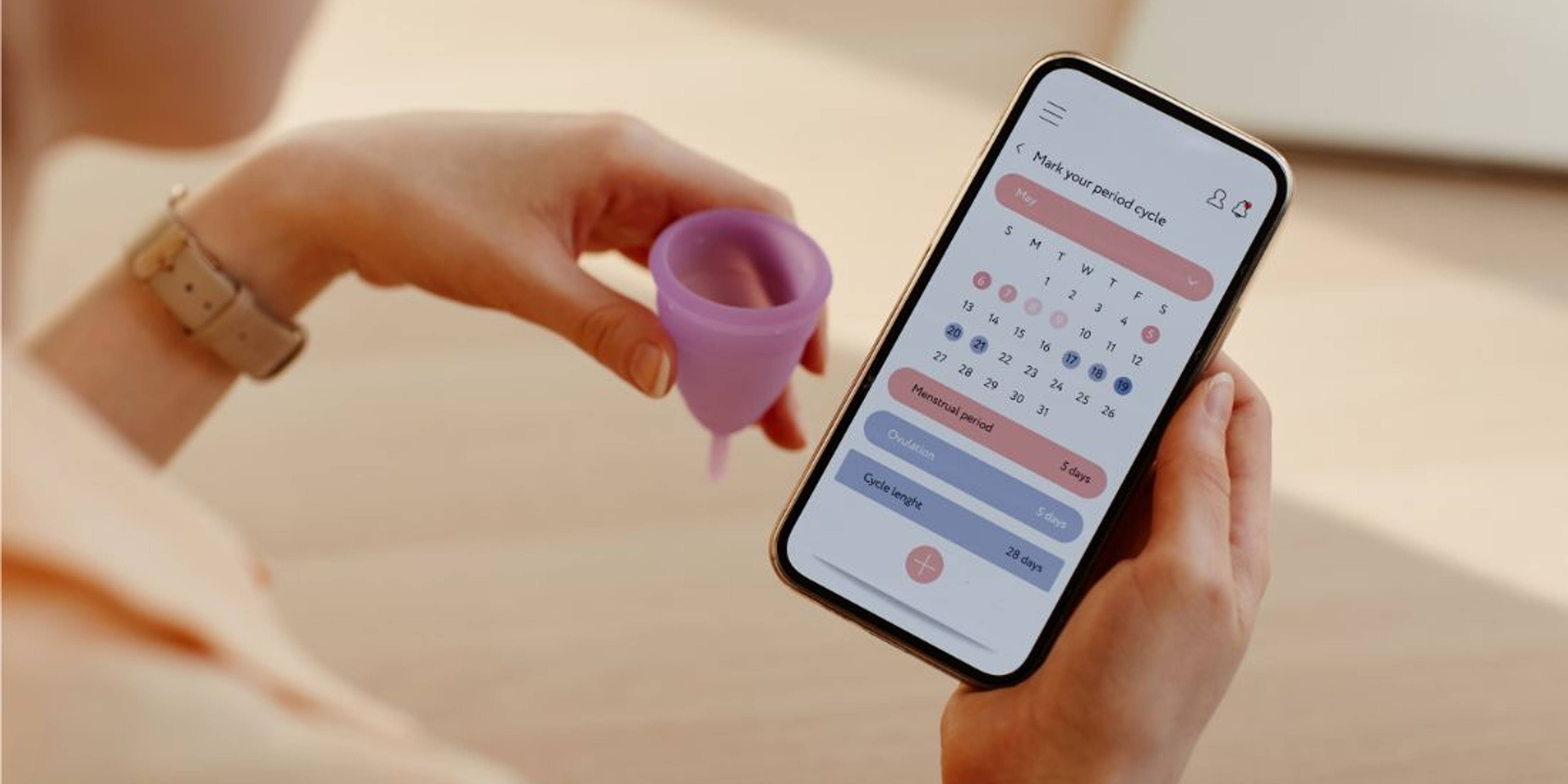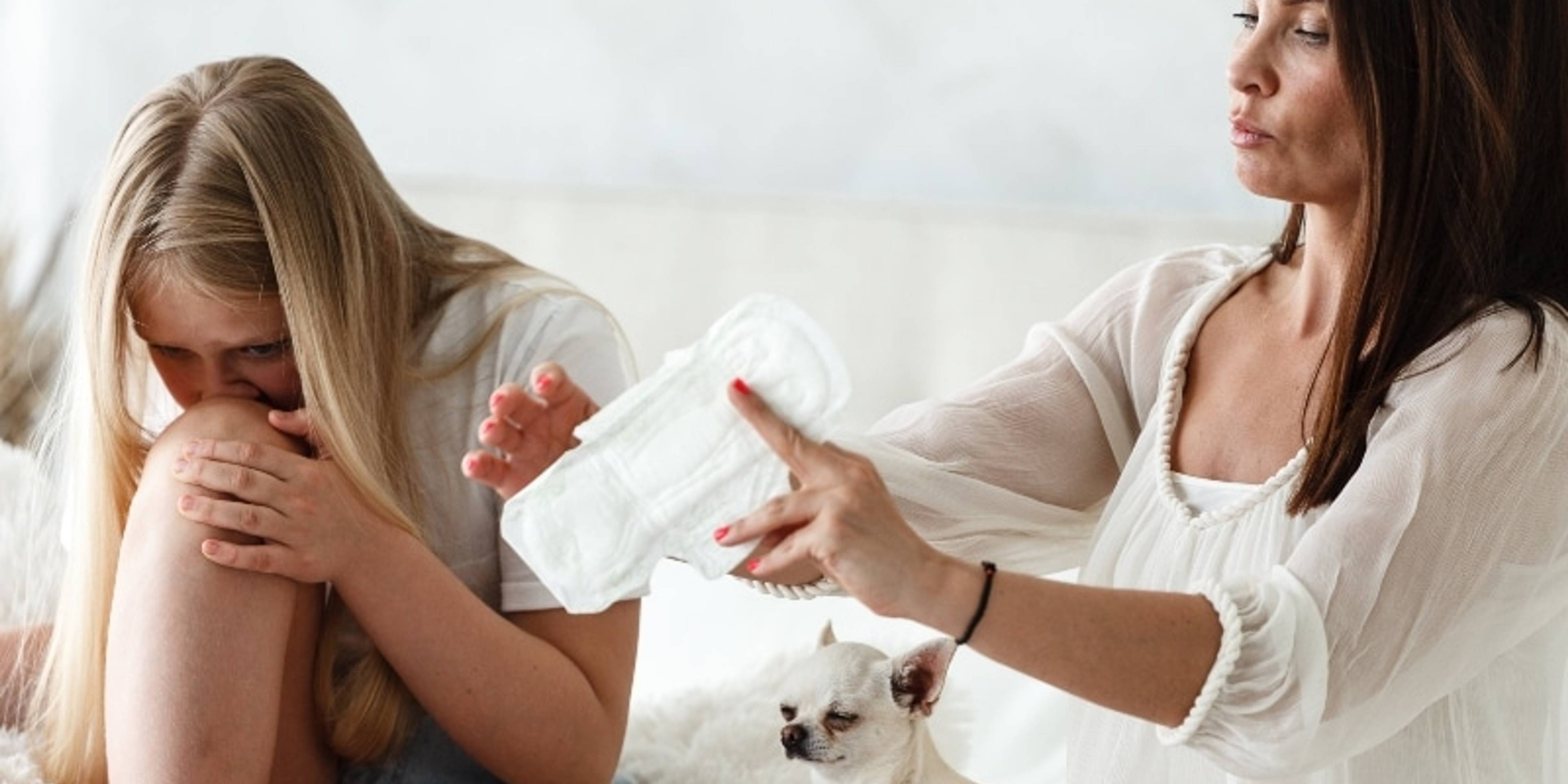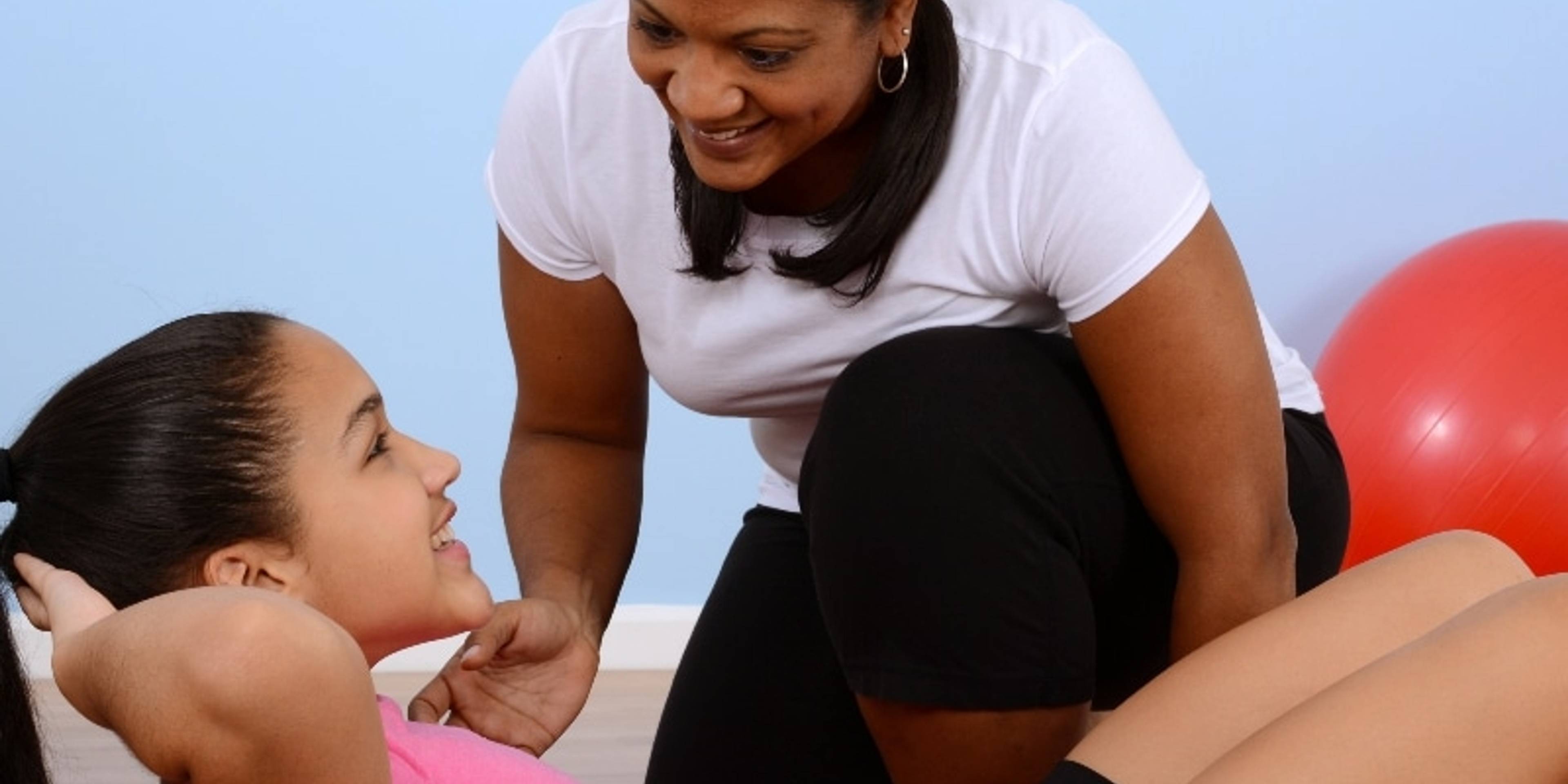November 14, 2024
Delivering effective menstrual education

Research has shown that menstruation and menstrual cycle symptoms can be disruptive and detrimental to physical, mental and social wellbeing. As many as 93% of teen girls experience dysmenorrhea (severe cramps) and girls with a typical cycle experience 11 menstrual cycle-related symptoms on average, potentially including mood changes, stomach cramps and increased levels of anxiety and fatigue. Adolescents with problematic symptoms have reported a negative impact on school attendance, behaviour, confidence around peers and participation in physical activity.
In the United Kingdom, evidence suggests that menstrual health education delivered by teachers generally focuses on menstrual cycle biology, as opposed to management of menstruation and menstrual cycle related symptoms. Our latest researcher of the month, Dr Natalie Brown, set out to understand young people’s perceptions of menstrual education in schools and their experiences of menstruating whilst at school, including within physical education.
Her study involved nine focus groups with 10-15 year old female pupils attending primary and secondary schools across England and Wales. Pupils highlighted that, in their experience, menstrual education is limited and noted that the menstrual cycle impacts negatively on their school experience, affecting participation in sport and school attendance generally. Participants highlighted a need for more support and information regarding understanding and managing periods in school.
Summary
During the focus groups, a range of factors relating to menstrual education were discussed. Dr Brown's analysis revealed four main themes: education preferences, the need for a period positive environment, personal experiences and the impact on school.
Participants clearly voiced that boys should receive education about the menstrual cycle to increase their understanding and compassion. However, they also preferred to have some discussions separately from boys, to increase their levels of comfort and reduce feelings of being judged or embarrassed. Where menstrual education was taught in mixed-sex classes, some participants shared how boys’ responses affected the content and reduced the opportunity for conversation and questions. Most participants preferred to receive menstrual education from female teachers due to their lived-experiences, and female teachers were generally perceived to be more understanding about this issue than males. Most felt that the lessons that they received focused only on the biology of periods, rather than how to manage symptoms. The girls tended to lack awareness about many aspects of the menstrual cycle including an understanding of anatomy, what is deemed a normal cycle and how to seek support.
Access to toilets was discussed in all focus groups with many participants revealing that this was limited or not possible during lessons. Mixed or unisex toilets caused unease due to comments from peers when changing period products. All focus groups reported that period products were available in their schools, yet there were varying degrees of embarrassment associated with accessing them. Participants did share positive examples of supportive environments that had been created within their schools, such as posters with information and supportive teachers.
Participants reported experiencing a wide range of menstrual-related symptoms (both physical and psychological), but lacked education on management strategies to use whilst in school. The physical symptom of bleeding was associated with negative experiences and words such as ‘embarrassing’, ‘suffering’, ‘inconvenience’ and ‘annoying’ were used to describe periods whilst at school. This was enhanced by the fear of boys' reactions (and occasionally girls'). Worries about irregular periods and bleeding unexpectedly were also evident. Sometimes, lack of symptom management was related to limited knowledge of what constitutes a healthy menstrual cycle, access to products and confidence to have conversations.
The majority of participants discussed the negative impact that menstrual-related symptoms can have on learning, engagement and attendance at school. Generally, participants reported that the first two days of their period were the worst for affecting their learning and engagement in lessons, and often referred to being distracted by stomach pain or worries about leaking. They also talked about challenges with managing emotions and concentration, low motivation and increased levels of tiredness. Many preferred to miss a day of school when they were bleeding heavily.
Whilst not all girls felt that their menstrual cycle impacted their ability to move and exercise, PE was the most affected aspect of school. Cramps, breast pain and the fear of leaking affected participation and many girls preferred not to exercise or take part in PE whilst menstruating, particularly avoiding certain types of exercise such as running and jumping, gymnastics and swimming. Girls were largely unaware that exercise can help in the management of menstrual symptoms and some requested having the option to take part in PE lessons in a different capacity, such as coaching.
Implications
“The findings highlight the lack of menstrual education received and subsequent impact of menstruation and menstrual-related symptoms in school and PE. The abundance of information requested by pupils highlights the deficit in understanding about how to manage periods in school and remain engaged in physical activity. Schools can utilise information from the current study to create period positive environments, consider lesson content and format, and explore how to support girls to stay physically active in PE.” (Dr Natalie Brown, et al., 2024)
Implications for schools
Consider how to deliver lessons most effectively and when to involve boys. Dr Brown recommends that in co-ed schools, boys and girls are taught about the basics of the menstrual cycle together, including biology and symptoms. After this point, it is worth considering giving additional information about products and management strategies to girls only as this may help them to feel more comfortable and confident.
Think carefully about access to toilets and period products. Products should be kept somewhere girls feel comfortable to go. Ideally, this will not be at a main reception where pupils have to ask for them in public, as this can be a barrier to use. Girls report that it is helpful when products are kept in the PE department, alongside a girls’ only toilet or changing room.
Use Dr Brown’s menstrual education lesson plans. You can find them on the Period Education website, where they can be downloaded for free. The first lesson focuses on menstrual cycle essentials. Lesson two focuses on a range of period products, including swimwear, activewear, pants and menstrual cups. The third lesson considers symptom management options and aims to empower girls with strategies they can use and suggestions for initiating conversations with teachers. The fourth lesson is about staying active during periods and participating in PE. The resources also contain further guidance for PE teachers in terms of providing alternative activities for pupils struggling with menstrual symptoms, slides to help with delivery of the information, suggested activities and additional information which supports teachers to feel confident delivering menstrual education.
Look out for Period Education's video support. Teachers have suggested that they lack confidence in delivering menstrual education. To help, Dr Brown and her colleagues are in the process of putting together video training. It will be on the website soon, so keep your eyes peeled.
Implications for home
Consider menstrual tracking. Encouraging girls to get into the habit of tracking their cycle can help them to learn more about their own symptoms and manage them more effectively. Cycles can be tracked either in a paper diary or on an app. Integrating tracking into something that they are already using can be a good way of encouraging consistency.
Notice problematic symptoms and seek help. It is not normal to experience really bad stomach cramps which affect day-to-day activities, bleeding so heavy that it requires period products to be changed every hour or two, severe anxiety or symptoms of depression. Girls should not ‘put up with’ these symptoms or accept them as normal. Remember that there is plenty of support out there. If this sounds familiar, encourage girls to visit the doctor.
Cultivate open conversation. Talk about periods and the menstrual cycle at home. Let children know that bleeding is a normal biological process and that it’s normal to experience symptoms. If you have periods, talk about your own experiences. Shift the narrative away from awkwardness and embarrassment.
If you are a dad, male teacher or coach… the Hey Girls website contains a section called pads4dads designed to help males feel more confident about having conversations about the menstrual cycle. Dr Brown’s research has found that conversations between girls and men can often feel awkward for both parties. A consistent finding is that girls would like male coaches or dads to initiate conversations about periods, rather than having to initiate them themselves. Having conversations about menstruation, even if they are brief, is invaluable as it opens the door to further discussion and help seeking if it is needed.
Be curious. Ask girls what they already know and want they might like to know.
Be aware of where they are getting information from. Whilst social media has some great resources, there is also a lot of misinformation around periods. Talk to girls about where they are accessing information and help them to be assess the quality of the resources they use and to question anything that rings alarm bells. The Well HQ has helpful social media platforms. In January, Period Education will launch social media channels, containing posts for both teachers and girls themselves.
Listen to our podcast interview with Dr Brown here.

Dr Natalie Brown
Research Officer, Welsh Institute of Performance Science, Swansea University
Dr Natalie Brown is a Research Officer at the Welsh Institute of Performance Science, Swansea University. She focuses on female health, specifically the menstrual cycle in relation to sports participation. Dr Brown is driven to support females to stay active across their whole menstrual cycle and use exercise as a vehicle to manage female hormone related symptoms. She is dedicated to educating, raising awareness and breaking down barriers related to the menstrual cycle for girls and women.
Dr Natalie Brown
Research Officer, Welsh Institute of Performance Science, Swansea University
Related Resources


Exercise and Periods
Scroll our research gallery

Dec 15, 2025
Crossing the line into cybercrime
As the most digitally connected generation so far, young people today face new challenges. Our latest Researchers of the Month, Professor Davidson and Dr Farr, have found that in the last decade, an increasing number of young people (particularly young men) have committed serious cybercrime offences, particularly hacking and money laundering. Their new book, written following a large research project funded by the European Union’s Horizon 2020 research and innovation programme, seeks to understand the drivers behind this trend. It explores a range of potential factors that may lead young people to engage in risky online behaviours, and to identify effective pathways for prevention.

Nov 16, 2025
Supporting Children’s Use of AI
Children and young people are now growing up surrounded by AI, and the landscape is shifting fast. In the UK, recent data from Ofcom and Internet Matters suggests that around half of children aged 8–17 regularly use generative AI tools such as ChatGPT, Bard or Snapchat’s MyAI. Many describe these interactions as feeling like conversations with a friend. A recent report from Common Sense Media found that 33% of teens had actually chosen to talk to an AI companion instead of a real person about something important or serious. Whether children are asking voice assistants to answer their questions, relying on chatbots for bedtime stories, using learning apps for revision or engaging with large generative AI models, it’s essential to remember that most of these systems were built with adults in mind, not children. They often assume levels of attention, memory and emotional maturity that younger users simply don’t have. Even older children and teenagers, who increasingly use AI as a supportive confidante (often without adult supervision or knowledge), are still learning to navigate boundaries around trust, identity and emotion. Our latest Researcher of the Month, Dr Nomisha Kurian, wants this to change. She has developed a new framework called Developmentally Aligned Design (DAD), which outlines how AI can be built with children’s needs, vulnerabilities and strengths at its core. She also chatted to us at Tooled Up, sharing practical tips on recognising when children may be relying too heavily on AI for emotional connection, how to talk to them about healthy boundaries, and how parents and educators can help children and young people use AI tools safely, creatively and critically.

Oct 16, 2025
Algorithmised Girlhood: Teenage Girls and TikTok
As part of the early stages of her PhD study, our latest researcher of the month, Chiara Fehr, ran several focus groups about experiences of TikTok with eight 17 year old girls. Using creative methods, such as ‘TikTok show and tells’ a collaging session and a utopic mapping exercise, Chiara is exploring whether dominant narratives around growing up in a digitised world reflect the real life experiences of teens, and has summarised her findings so far in a recent article.
![“[They use devices] alllllllll day long”. What do children think about our tech use?](https://cdn.sanity.io/images/jxfh43in/content-prod-d2c/79f219275088655f59590f61ff29b6bc8b0d77f8-1100x733.jpg?w=3840&h=1920&q=70&fit=crop&crop=center&auto=format)
Sep 09, 2025
“[They use devices] alllllllll day long”. What do children think about our tech use?
We're all used to reading about children and young people's increasing use of digital tech. But what about adults' use? And what impact might our tech use have on family life? Parents today are spending an unprecedented amount of time on their devices. One study found that parents spend an average of nine hours per day engaged with screen devices. Over four hours of this is on smartphones, averaging 67 phone checks per day. Despite children's central role in family life, their voices and perspectives on the device use of the adults around them have been largely neglected in research. Along with colleagues, our latest Researcher of the Month, Professor Cara Swit, has published a fascinating study exploring the experiences and perceptions of children aged six to nine about their parents’ device use at home and its impact on them.

Aug 13, 2025
Students’ views on smartphone bans
In recent years, banning or restricting children’s access to smartphones and social media has grasped the attention of policy makers, schools and parents. A number of countries, including France, Turkey, Norway, Sweden, and regions of the US and Canada have introduced laws, policies or guidance for schools to ‘ban’ or heavily restrict the use of phones. Within Ireland, in 2024, the Minister for Education announced her intention to introduce smartphone bans in post-primary schools, whilst at the same time acknowledging that individual schools are best placed to decide on the scope and scale of restrictions for their students. Whilst these bans aim to protect children from harm, and teachers often anecdotally report seeing benefits, evaluations of existing research highlight a lack of evidence on their efficacy. At the moment, we simply don't know enough about the impact of bans. Evidence is hampered by the fact that technological developments and technology use is moving at a faster pace than research. Some studies suggest that bans are beneficial to academic outcomes and mental wellbeing. Others suggest no effects. However, many studies have methodological weaknesses, use small samples or retrospective data, and can't ascribe causal mechanisms. Our latest Researcher of the Month, Dr Megan Reynolds, has recently published a paper which explores young people's perspectives and experiences of smartphone bans in their schools. Unlike most previous research, it centres student voices in this high profile issue.

Jul 14, 2025
Do teens with mental health conditions use social media differently than their peers?
As Luisa Fassi, our new Researcher of the Month, comments, "The link between social media use and youth mental health is hotly debated, but hardly any studies look at young people already struggling with clinical-level mental health symptoms". In fact, Luisa's large systematic review and meta-analysis found that only 11% of papers published on the topic since 2007 focused on young people with clinical conditions. Her review also showed that the data used to evidence mental health conditions in these existing studies is not always strong or especially robust. Many report links between social media and mental health on the basis of short self-report questionnaires, where young people are asked about symptoms. Whilst this wasn't found as part of Luisa's review, it is also the case that very few papers in the field differentiate between different mental health conditions, or examine different symptoms or conditions (such as anxiety, ADHD or eating disorders) in isolation. To address this research gap, Luisa and colleagues have recently published a fascinating and nuanced paper. It analyses both quantitative and qualitative dimensions of social media use from a nationally representative survey of 3,340 teens in the UK aged between 11 and 19 years old, which was conducted by NHS Digital in 2017. Rather than gathering mental health data from self-report questionnaires, the young people in the survey underwent a full clinical screening, which included interviews with the young people, their parents and teachers. Information about social media use came from questionnaires completed by participants. They were not asked about specific platforms. Luisa used this data to gather novel insights into how social media and mental health are related in teens who both meet and do not meet diagnostic criteria for a wide range of mental health conditions. The study does not establish any causal links, but it does reveals a range of differences between young people with and without mental health conditions when it comes to social media.

Jun 17, 2025
Navigating the feed: younger adolescents' reflections on algorithmically curated social media
Our latest researcher of the month, Roxana Pomplun, has investigated the interactions, experiences and perceptions of younger adolescents, aged 11, 12, and 13, with algorithmically curated platforms such as TikTok, YouTube Shorts, Spotlight on Snapchat and Reels on Instagram. These kinds of platforms use algorithms to personalise and tailor feeds, harnessing user data to suggest content that the individual is most likely to be interested in and engage with. As such, young people have little control over what they are seeing in their feeds. Tech companies are not yet required to be transparent about the data that they are collecting, but it tends to include demographic information such as age, gender or location, along with use patterns. Whilst these sites dominate the digital lives of tweens and teens, until now they have received little dedicated research attention, particularly in relation to younger users, with most existing studies focusing on older teens. Whilst we know that most social media platforms have age limits of 13, we also know that many younger children are active users, particularly of algorithmically curated platforms like TikTok and YouTube Shorts. Given that early adolescence is a life phase marked by critical neurological development, identity development and heightened susceptibility to mental health issues, deepening our understanding of how younger adolescents engage with social media is vital. Roxana's qualitative research, where a group of young people eloquently explore their own experiences and perceptions, broadens our knowledge of social media use within an age group that appears increasingly aware of the digital influences shaping their online experiences, yet which is still in need of support to fully navigate these ecosystems.

May 15, 2025
Looking beyond smartphone bans
Over the last year or so, there has been a surge in public concern around smartphones and social media. Banning or restricting children’s access to smartphones and social media has grasped the attention of policy makers, schools and parents. A number of countries, including France, Turkey, Norway, Sweden, and regions of the US and Canada have introduced laws, policies or guidance for schools to ‘ban’ or heavily restrict the use of phones. In the UK, there are proposals to raise the age of ‘internet adulthood’ from 13 to 16, and to ban smartphones in schools. The third reading of a private members’ bill on this topic will be heard in parliament in July. Whilst these bans aim to protect children from harm, recent studies highlight a lack of evidence on their efficacy. Along with a team of international experts, our latest Researcher of the Month, Professor Victoria Goodyear, argues that, in isolation, banning smartphone and social media access fails to equip children for healthy use of technology. She suggests that there is a need to shift debates, policies and practices away from a sole focus on restricting smartphone and social media access, toward an emphasis on nurturing children’s digital skills for healthy technology use, and a rights-respecting approach which is underpinned by age-appropriate design and education.

Apr 22, 2025
Encouraging adventurous play in the preschool years
Tune into our podcast interview with April's researchers of the month here. As well as providing numerous opportunities for exploration, joy, and expression, outdoor and adventurous play - the type of play that allows children to take age-appropriate risks - is associated with a range of positive health behaviours and outcomes. Yes, we're talking about the kind of play that might leave us adults with our hearts in our mouths at times, as children start to disappear up a tree, or engage in a rough and tumble game of chase. But its benefits are wide-ranging and known impacts include increased levels of habitual physical activity alongside better mental health and positive mood. In 2019, Dr Hesketh was involved in the creation of physical activity guidelines in the UK, which explicitly note the importance of outdoor play for children in the preschool age group. We know quite a lot about the play habits of school-aged children, but until now, have had significantly less data on their younger counterparts. Our Researchers of the Month, Dr Kathryn Hesketh and Professor Helen Dodd set out to discover how much time preschool-aged children spend playing in a range of indoor and outdoor spaces, and how adventurously they are playing within them. In the first national survey of play in children of this age, they asked over 1000 parents of two to four year olds about their children’s play habits, finding that, on average, children aged two to four spend around four hours per day (outside of educational settings) playing. Just under 50% of this was spent playing outdoors. Their findings shed interesting light on some inequalities in play, even in the youngest age group, which may exacerbate existing inequalities in health.

Mar 17, 2025
Fostering a school culture against bullying: the KiVa Programme
Bullying is an extremely important public mental health risk. Around one in five primary school children report being bullied at least weekly. Children who are bullied are more likely to experience depression and anxiety, and are at heightened risk of mental health issues in adolescence and adulthood. Whilst schools in England and Wales are required to have anti-bullying policies, rates of bullying remain high. Bullying is preventable, but schools need more help to tackle it. Typically, school policies focus on how to handle bullying once it happens. However, evidence suggests that a comprehensive approach involving the entire school to prevent bullying, alongside clear strategies for addressing confirmed cases, is the most effective way to tackle the issue. KiVa is one such whole-school approach, developed in Finland by Professor Christina Samivalli. A large study in Finland which involved 28,000 primary school pupils found that adopting the KiVa programme in Finnish schools significantly reduced bullying and improved children's mental wellbeing. The programme has since been rolled out nationally by the Finnish government and ongoing use of KiVa in Finnish schools is associated with year-on-year incremental reductions in bullying. Along with colleagues, our researcher of the month, Professor Judy Hutchings OBE, has tested the effectiveness of the KiVa Programme in UK primary schools. The study involved over 11,000 children in Wales, Birmingham, Oxfordshire and Devon, and showed a 13% reduction in reported rates of bullying when compared with existing school approaches to tackle bullying.



